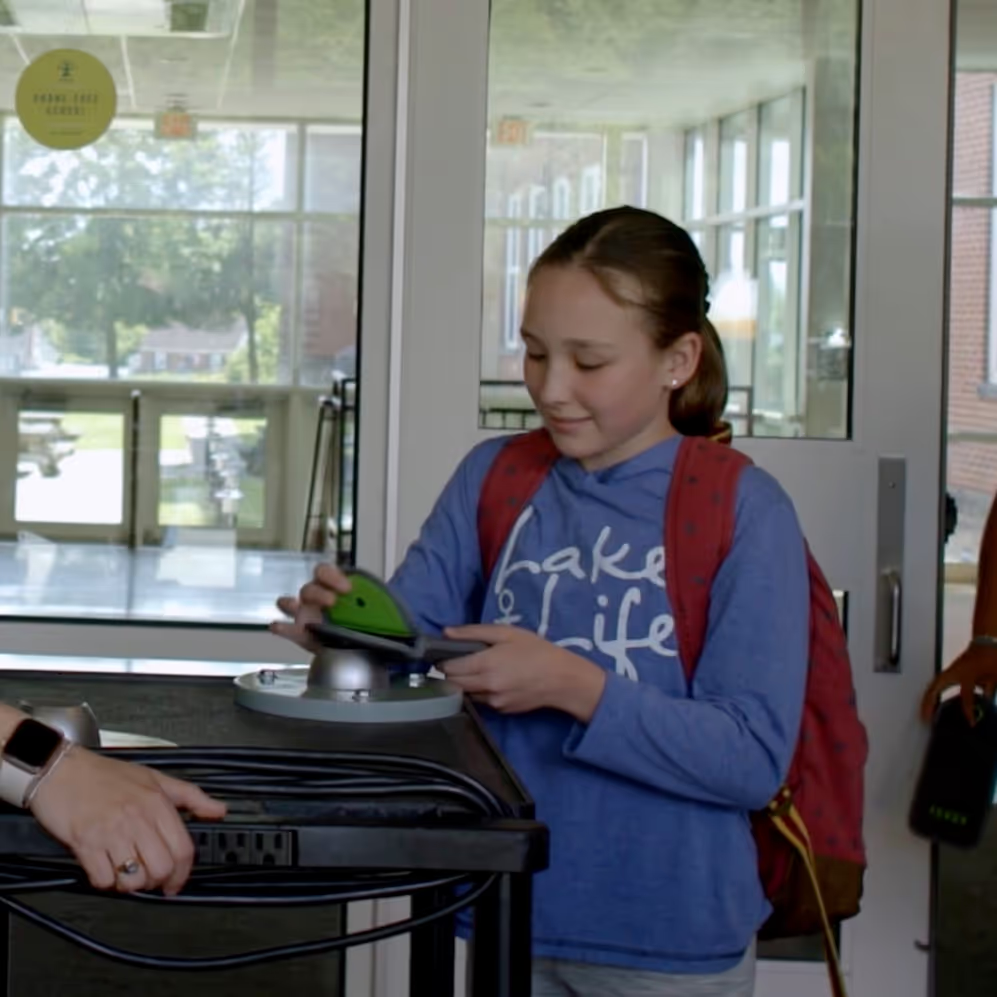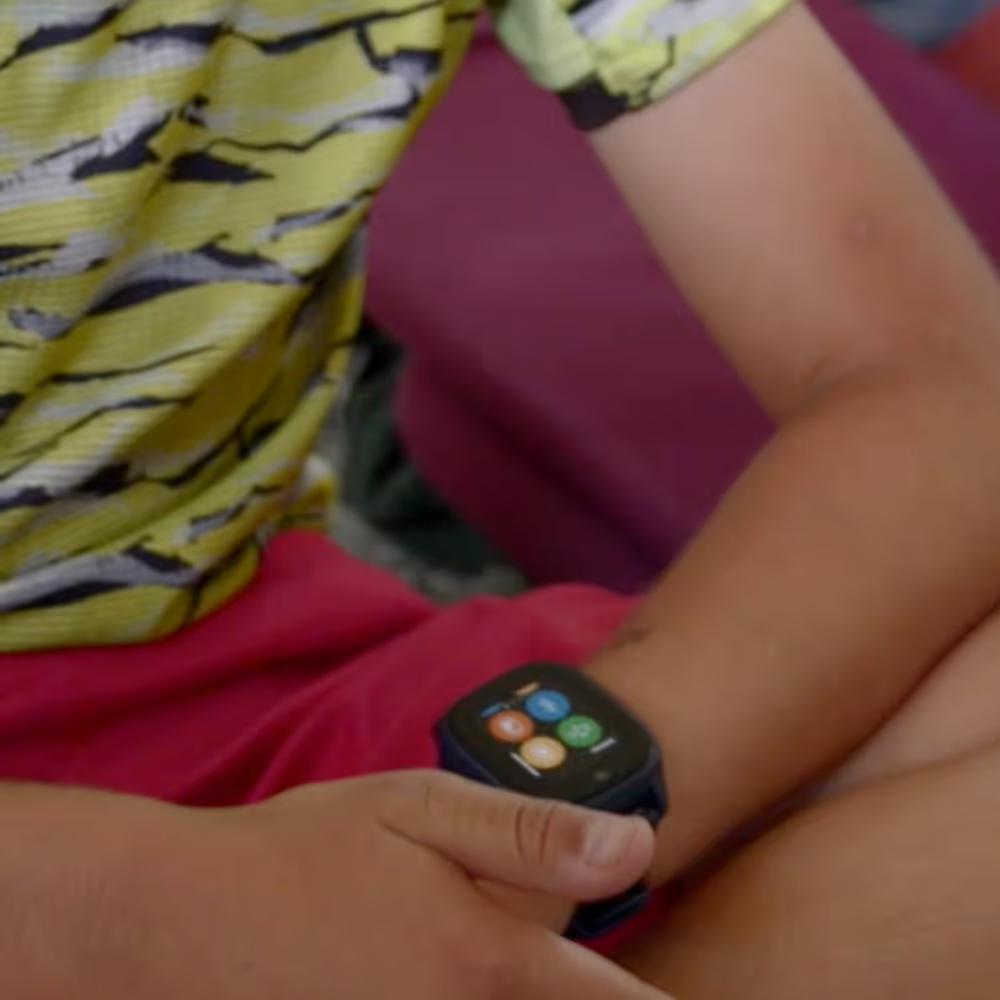


A major reason I started filming Screenagers in the first place was that I saw how homework was going to be more and more on computers. I was thinking, "wow, being a kid or teen trying to stay on task for homework when the tech world is so entertaining, how is that going to work?" I compared it to my trying to ignore a plate of fresh baked chocolate chip cookies while doing a writing assignment—and I can tell you how that went 9 out of 10 times.
As much as I feel for kids and teens, I also feel for us parents. It's really painful to think about how our teens are switching tabs when they should be on task. According to psychologist Larry Rosen’s study, middle school, high school, and university students focus on average for six minutes before they switch off of homework to a technological distraction. For the study, students were in their home and instructed to study something important while a person observed their activities for 15 minutes.
I have some suggestions for improving study habits that I call Homework Hygiene. Sleep hygiene is something we talk a lot about in medicine because sleep problems, particularly insomnia, are so common. We help people set up practices and habits to increase a good night’s sleep such as going to bed at the same time each night, setting an alarm for earlier wake-up times to reset their internal clock, and other techniques. Homework Hygiene is all about helping kids develop effective practices around homework such as writing to-do lists, developing the habit of prioritizing the list and checking things off.
It is a top priority to engage our kids in conversations in which they become aware of the challenges they face in having good homework habits.
Start by saying you have empathy for all kids about homework—you understand that after a full school day how difficult it is to do repetitive or hard work. Validate that having to do homework can feel tortuous at times, and now with distractions at our fingertips, there is a new, unprecedented level of challenge.
Have one good conversation about homework that is calm and curious, not personal and judgemental. Here are two good ones to consider:
Talk about the science of homework. For example, mention the study I described above and ask for their guess about the average time it took before people went off task.
Discuss the difference between external distractions vs. internal distractions. How often do they experience an external distraction, i.e. they have their phone near them and see that someone has pinged them and they feel the need to check the message? Internal distraction is a psychological pull towards doing something other than homework—like a sense of a need to check into social media or to switch to a favorite website.
After the non-personal conversations, get your kid to talk about their current homework strategies and habits. Ask questions like, “Do you start by writing a list of what needs to get done?" Now is a good time to throw out ideas.
There are many other strategies that I will be sharing in upcoming TTTs. I hope you will tell your friends about TTTs so together we increase the number of calm conversations happening in our communities. Meanwhile, I always love hearing from you!
Learn more about showing our movies in your school or community!
Join Screenagers filmmaker Delaney Ruston MD for our latest Podcast

Learn more about our Screen-Free Sleep campaign at the website!
Our movie made for parents and educators of younger kids
Learn more about showing our movies in your school or community!
Learn more about showing our movies in your school or community!
Join Screenagers filmmaker Delaney Ruston MD for our latest Podcast

Learn more about our Screen-Free Sleep campaign at the website!
Our movie made for parents and educators of younger kids
Join Screenagers filmmaker Delaney Ruston MD for our latest Podcast
As we’re about to celebrate 10 years of Screenagers, we want to hear what’s been most helpful and what you’d like to see next.
Please click here to share your thoughts with us in our community survey. It only takes 5–10 minutes, and everyone who completes it will be entered to win one of five $50 Amazon vouchers.
A major reason I started filming Screenagers in the first place was that I saw how homework was going to be more and more on computers. I was thinking, "wow, being a kid or teen trying to stay on task for homework when the tech world is so entertaining, how is that going to work?" I compared it to my trying to ignore a plate of fresh baked chocolate chip cookies while doing a writing assignment—and I can tell you how that went 9 out of 10 times.
As much as I feel for kids and teens, I also feel for us parents. It's really painful to think about how our teens are switching tabs when they should be on task. According to psychologist Larry Rosen’s study, middle school, high school, and university students focus on average for six minutes before they switch off of homework to a technological distraction. For the study, students were in their home and instructed to study something important while a person observed their activities for 15 minutes.
I have some suggestions for improving study habits that I call Homework Hygiene. Sleep hygiene is something we talk a lot about in medicine because sleep problems, particularly insomnia, are so common. We help people set up practices and habits to increase a good night’s sleep such as going to bed at the same time each night, setting an alarm for earlier wake-up times to reset their internal clock, and other techniques. Homework Hygiene is all about helping kids develop effective practices around homework such as writing to-do lists, developing the habit of prioritizing the list and checking things off.
It is a top priority to engage our kids in conversations in which they become aware of the challenges they face in having good homework habits.
Start by saying you have empathy for all kids about homework—you understand that after a full school day how difficult it is to do repetitive or hard work. Validate that having to do homework can feel tortuous at times, and now with distractions at our fingertips, there is a new, unprecedented level of challenge.
Have one good conversation about homework that is calm and curious, not personal and judgemental. Here are two good ones to consider:
Talk about the science of homework. For example, mention the study I described above and ask for their guess about the average time it took before people went off task.
Discuss the difference between external distractions vs. internal distractions. How often do they experience an external distraction, i.e. they have their phone near them and see that someone has pinged them and they feel the need to check the message? Internal distraction is a psychological pull towards doing something other than homework—like a sense of a need to check into social media or to switch to a favorite website.
After the non-personal conversations, get your kid to talk about their current homework strategies and habits. Ask questions like, “Do you start by writing a list of what needs to get done?" Now is a good time to throw out ideas.
There are many other strategies that I will be sharing in upcoming TTTs. I hope you will tell your friends about TTTs so together we increase the number of calm conversations happening in our communities. Meanwhile, I always love hearing from you!
Sign up here to receive the weekly Tech Talk Tuesdays newsletter from Screenagers filmmaker Delaney Ruston MD.
We respect your privacy.
A major reason I started filming Screenagers in the first place was that I saw how homework was going to be more and more on computers. I was thinking, "wow, being a kid or teen trying to stay on task for homework when the tech world is so entertaining, how is that going to work?" I compared it to my trying to ignore a plate of fresh baked chocolate chip cookies while doing a writing assignment—and I can tell you how that went 9 out of 10 times.
As much as I feel for kids and teens, I also feel for us parents. It's really painful to think about how our teens are switching tabs when they should be on task. According to psychologist Larry Rosen’s study, middle school, high school, and university students focus on average for six minutes before they switch off of homework to a technological distraction. For the study, students were in their home and instructed to study something important while a person observed their activities for 15 minutes.
I have some suggestions for improving study habits that I call Homework Hygiene. Sleep hygiene is something we talk a lot about in medicine because sleep problems, particularly insomnia, are so common. We help people set up practices and habits to increase a good night’s sleep such as going to bed at the same time each night, setting an alarm for earlier wake-up times to reset their internal clock, and other techniques. Homework Hygiene is all about helping kids develop effective practices around homework such as writing to-do lists, developing the habit of prioritizing the list and checking things off.
It is a top priority to engage our kids in conversations in which they become aware of the challenges they face in having good homework habits.
Start by saying you have empathy for all kids about homework—you understand that after a full school day how difficult it is to do repetitive or hard work. Validate that having to do homework can feel tortuous at times, and now with distractions at our fingertips, there is a new, unprecedented level of challenge.
Have one good conversation about homework that is calm and curious, not personal and judgemental. Here are two good ones to consider:
Talk about the science of homework. For example, mention the study I described above and ask for their guess about the average time it took before people went off task.
Discuss the difference between external distractions vs. internal distractions. How often do they experience an external distraction, i.e. they have their phone near them and see that someone has pinged them and they feel the need to check the message? Internal distraction is a psychological pull towards doing something other than homework—like a sense of a need to check into social media or to switch to a favorite website.
After the non-personal conversations, get your kid to talk about their current homework strategies and habits. Ask questions like, “Do you start by writing a list of what needs to get done?" Now is a good time to throw out ideas.
There are many other strategies that I will be sharing in upcoming TTTs. I hope you will tell your friends about TTTs so together we increase the number of calm conversations happening in our communities. Meanwhile, I always love hearing from you!

This year, millions of students are experiencing a major shift: school days without phones, smartwatches, or other personal devices. Today we explore the wins, hurdles, and solutions helping schools succeed. We also share our resources that you can use to support technology policy changes in your schools.
READ MORE >
I recently sat down with middle school principal Zach at his school in Washington State. We talked about the challenges Zach and his team faced in his early years as principal when students used phones during school, and how he brought about a powerful transformation by having phones and smartwatches put away in locked pouches for the whole school day. In today’s blog, to raise awareness of the challenges, I share five real examples from Zach of the troubling ways students use phones at school to be unkind.
READ MORE >
It is with great pleasure that I share with you today a piece that Lisa Tabb and I did for Jonathan Haidt's (Author of The Anxious Generation) and researcher Zack Rausch's Substack blog — After Babel. In it, we discuss the rise in use of smartwatches in elementary schools and the problems they pose. There is a real cost to arming (pun intended) our kids with these devices and sending them to school. Now is the time to stop and fully address this topic and ensure that schools become smartwatch and phone-free.
READ MORE >for more like this, DR. DELANEY RUSTON'S NEW BOOK, PARENTING IN THE SCREEN AGE, IS THE DEFINITIVE GUIDE FOR TODAY’S PARENTS. WITH INSIGHTS ON SCREEN TIME FROM RESEARCHERS, INPUT FROM KIDS & TEENS, THIS BOOK IS PACKED WITH SOLUTIONS FOR HOW TO START AND SUSTAIN PRODUCTIVE FAMILY TALKS ABOUT TECHNOLOGY AND IT’S IMPACT ON OUR MENTAL WELLBEING.
